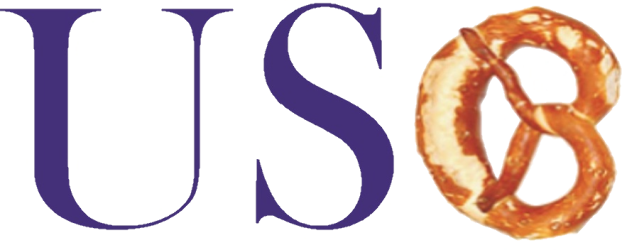Dear Director Cordray:
We, the 131 signatories to the page, represent a diverse cross-section of elected officials, federal government, work, grassroots arranging, https://www.autotitleloanstore.com/payday-loans-id/ civil liberties, appropriate services, faith-based and other community businesses, along with community development banking organizations. We respectfully request that the CFPB count this page as 131 reviews.
Together, we urge one to issue a solid payday lending rule that ends the loan debt trap that is payday. Once the CFPB makes to issue a last guideline to deal with payday financing nationwide, we urge you to not undermine our state’s longstanding civil and criminal usury guidelines. Certainly, we urge one to issue a guideline that improves our existing defenses.
While the CFPB truly acknowledges, a summary of signatories of the magnitude and breadth isn’t you need to take gently. This page reflects the career greater than 38 state and regional elected officials, the NYC Department of customer Affairs, the Progressive Caucus associated with the NYC Council – also as 92 companies that represent a diverse spectral range of communities, views, and constituents. We have been worried that the CFPB is poised to issue a rule that is weak wouldn’t normally only set a reduced club for the whole nation, but that will additionally straight undermine our state’s longstanding ban on payday financing.
As New Yorkers, we think we now have a particularly appropriate viewpoint to share. Significantly More than 90 million Americans – nearly a third associated with the country – real time in states like ny where payday financing is unlawful. Our experience obviously shows that: (1) folks are means better off without payday financing; and (2) the simplest way to address abusive payday lending, and also other forms of predatory high-cost financing, is to stop it for good.
As proposed, the CFPB’s payday financing guideline is full of loopholes and would effortlessly sanction high-cost loans which are unlawful within our state and several other jurisdictions in the nation. We call on the CFPB to issue a solid rule that is final does perhaps maybe not undermine brand brand New York’s longstanding usury as well as other customer security legislation. We urge you to definitely set a bar that is high the complete country and issue a rule that enhances, and will not undermine, our current defenses. We ask the CFPB to make use of its full authority to issue the strongest feasible rule that is final will certainly end the cash advance financial obligation trap.
The payday financing industry has thrived because more and more people in our nation don’t have enough earnings to cover their fundamental bills.
The thing that is last people need are predatory, high-cost loans that dig them into a straight much much much deeper hole — exactly what goes on now in states that permit payday financing. Indeed, many New Yorkers are in monetary stress, struggling to create ends satisfy from paycheck to paycheck (or federal federal federal government advantages check to federal federal federal government advantages check), therefore the proven fact we usually do not allow lending that is payday has proven crucial to protecting a big portion associated with populace from economic exploitation. Where lending that is payday legitimately allowed, the industry has targeted black colored and Latino communities, draining billions of bucks and perpetuating the racial wide range space into the U.S.
In a nutshell, we give consideration to ourselves exceedingly fortunate to live and work in a situation that bans payday financing. Our centuries-old usury law makes it a felony to charge more than 25 % interest for that loan. Maintaining payday financing out of brand new York has supplied vast advantages to New Yorkers, neighborhood communities as well as the state economy in particular. Each 12 months, for example, our state’s usury legislation saves New Yorkers about $790 million which they would otherwise devote to charges for unaffordable payday and vehicle name loans. 1
Despite these clear benefits, payday lenders have actually for several years tried to crack open our usury legislation making predatory high-cost financing appropriate in our state. Seeing an untapped, profitable market they could exploit in ny, the payday financing and check cashing trade groups have actually over and over repeatedly pressed our state legislature to legalize high-cost payday as well as other kinds of harmful financing. Over and over, these efforts have actually pitted the interest that is public predatory financing interests, resulting in unsightly battles between community teams and industry, and draining massive general public resources along the way. Happily, we now have successfully beat straight straight back these tries to gut our usury legislation, many many many thanks in big measure to advocacy that is effective a broad coalition of community, work, and civil liberties teams, which has ensured that payday financing stays unlawful inside our state.
Our company is well mindful that the CFPB might not set interest levels, but the agency can and really should utilize its complete authority to simply simply take action that is strong. Missing strong action that is federal stopping payday lending, including payday installment financing, will continue steadily to be a casino game of whack-a-mole.
We’re extremely concerned that a poor CFPB guideline will play straight in to the arms associated with the lending that is payday, supplying it with ammo needed seriously to defeat strong rules like we’ve in ny. Certainly, in Pennsylvania and Georgia, the lending that is payday has apparently utilized the CFPB’s 2015 blueprint for the guideline, telling state legislators that the CFPB has offered its stamp of approval to high-cost payday and payday-like loans.
The proposed rule includes a list that is long of and exceptions that raise major concerns for our organization. We strongly urge the CFPB, at the very least, to:
- Need a“ability that is meaningful repay” standard that is applicable to all or any loans, without exceptions sufficient reason for no safe harbors or legal immunity for poorly underwritten loans. The “ability to repay provision that is need consideration of both earnings and costs, and declare that loans which do not satisfy a significant capability to repay standard are per se unjust, unsafe, and unsound. A poor CFPB guideline which allows loan providers to help make unaffordable loans or which includes a harbor that is safe maybe maybe not merely allow for continued exploitation of individuals struggling in order to make ends satisfy. It might additionally offer payday lenders unwarranted ammo to knock down current state defenses, while they were aggressively wanting doing for years.
- Fortify the enforceability of strong state customer security rules, by supplying that providing, making, facilitating, servicing, or gathering loans that violate state usury or other consumer security regulations can be an unjust, misleading, and act that is abusive practice (UDAAP) under federal legislation. The CFPB’s success in deploying its UDAAP authority against payday loan providers such as CashCall – which a federal court recently discovered had involved in UDAAPs by servicing and gathering on loans that have been void or uncollectible under state legislation, and that the borrowers consequently did perhaps perhaps not owe – as well as against collectors, re re payment processors, and lead generators, supplies a strong appropriate foundation for including this explicit dedication in its payday financing guideline. By doing so, the CFPB may help make sure the viability and enforceability associated with rules that presently protect people in payday states that are loan-free unlawful financing. At least, the CFPB should offer, according to the court’s choice against CashCall, that servicing or gathering on loans which can be void or uncollectible under state legislation are UDAAPs under federal legislation.

